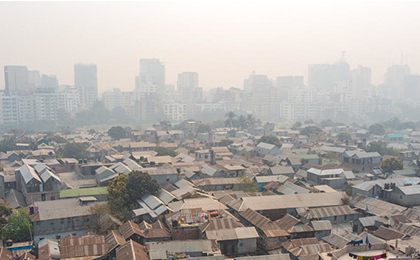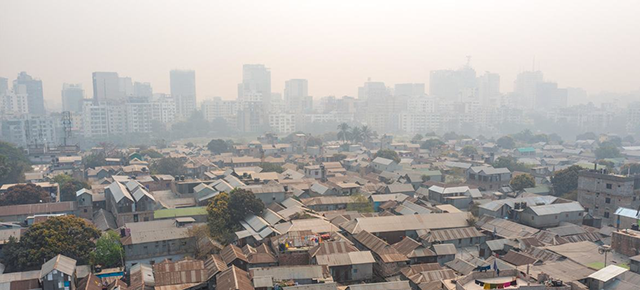



Source: https://news.un.org/en/story/2025/05/1163851
The UN’s urban development agency estimates that an astonishing 2.8 billion people worldwide lack access to adequate housing, secure land, and basic water and sanitation services - that’s around 40 per cent of the global population. This includes more than 1.12 billion people living in slums or informal settlements. An additional 300 million face absolute homelessness, lacking any form of stable shelter, UN-Habitat estimates.
Living without
The crisis is particularly acute in rapidly urbanizing regions such as Africa and the Asia-Pacific. As cities grow, housing development and infrastructure fail to keep pace, leading to a dramatic increase in informal and inadequate living conditions.
In Africa, 62 per cent of urban dwellings are informal. In the Asia-Pacific region, over 500 million people lack access to basic water services, and more than a billion live without adequate sanitation.
As climate change intensifies, those without formal, quality housing and services face growing risks from extreme heat, severe weather events, and water scarcity.
Finding sustainable solutions to the housing crisis is central to advancing global sustainable development. Quality housing is not only a basic human right - it also drives job creation, boosts national income, saves lives, and lays the foundation for better health, education, and economic mobility.
UN-Habitat response
To address this crisis, on Thursday, delegates gathered under the UN’s roof in Nairobi to resume the second session of the UN-Habitat Assembly. Through discussion, collaboration and policy planning, the major summit aims to address this pressing and deeply intertwined issue.
“This Assembly represents the highest global platform for normative discussions on sustainable urbanization and human settlements. It is a moment of collective reflection, renewed political will and forging consensus for the future we seek for our cities and communities,” said UN-Habitat Executive Director Anacláudia Rossbach in her opening remarks.
“Housing is a catalyst for social inclusion, equality, and sustainability,” said Anne Hidalgo, Mayor of Paris. “It is urgent to see cities not as a local issue, but as a global lever - for climate action, for social justice, and for achieving the Sustainable Development Goals.”
“Housing is extremely important in any society, especially societies with inequalities,” said Sakaja Arthur Johnson, Governor of Nairobi City County. “Housing is at the top of our agenda because we want to give our people dignity, we want them to be able to have hope.”
Participants reaffirmed that adequate housing is not just a roof over one’s head but the foundation for safety, health, and opportunity. They called for rights-based housing policies, scalable financing mechanisms, and stronger partnerships with communities, the private sector and international development banks.
The session also highlighted progress made under the resolution on adequate housing for all, which led to the establishment of the Open-Ended Intergovernmental Working Group on Adequate Housing for All and a global Adequate Housing Platform. Both initiatives will support the implementation of UN-Habitat’s Strategic Plan through evidence-based policy guidance and global collaboration.
Strategic plan
A key focus of the Assembly is the adoption of UN-Habitat’s Strategic Plan for 2026-2029. The plan will prioritize adequate housing, access to land and basic services and the transformation of informal settlements.
It outlines three main impact areas: (1) inclusive prosperity, (2) preparedness, recovery, and reconstruction and (3) climate sustainability. These pillars are designed to accelerate progress toward the Sustainable Development Goals.
The plan also emphasizes strengthening collaboration with other UN agencies to achieve shared objectives.
UN-Habitat will support governments and partners through integrated action on planning, finance, governance, innovation, and capacity-building. The strategic plan provides a roadmap to accelerate impact, align with the 2030 Agenda for Sustainable Development, and respond effectively to overlapping crises - from climate shocks and conflicts to economic instability.

UN-Habitat Assembly